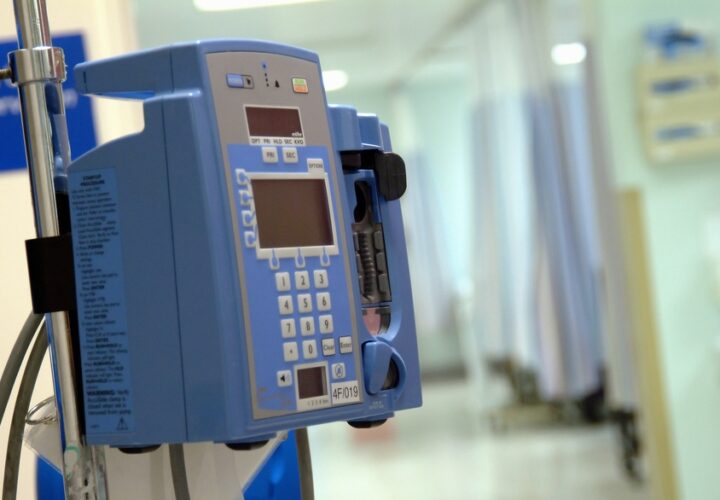What is delirium? Nursing professor Christina Aggar at Australia's Southern Cross University helps define this often temporary and treatable condition, while taking a look at how to prevent it.
Delirium is a sudden decline in a person’s usual mental function. It occurs when signals in the brain aren’t sending and receiving properly, causing confusion in thinking and altered behavior or levels of consciousness. Delirium isn’t a disease – it’s a clinical syndrome or condition that is usually temporary and treatable — and it’s often mistaken for dementia, because both conditions have similar symptoms, such as confusion, agitation and delusions. If a healthcare professional doesn’t know the patient, it can be difficult to tell the difference. It can also be a sign of longer-tail cognitive issues.
Up to one third of older people admitted to hospital are diagnosed with delirium. This increases the risk of unnecessary functional decline, a longer hospital stay, falls, needing to be admitted to a residential aged care facility, and death. However, identifying the condition early reduces these risks. Delirium can also be prevented by identifying who is vulnerable to the condition and finding ways of reducing the person’s risk.
What causes delirium?
Delirium is usually caused by a number of underlying acute (short-term) illnesses and medical complications. Elderly people are vulnerable to delirium because their bodies have fewer reserves than younger people to respond to these stressors. People with dementia are particularly at risk.
Factors that cause or increase the risk of delirium include:
- malnutrition
- dehydration
- new medications
- a fall
- surgery
- infection
- admission to the intensive care unit
- multiple bed moves
- pain
A diagnosis of delirium is made on the basis of clinical history, behavioral observation and a cognitive assessment by a clinician trained to assess delirium.
The patient and their family or carer should also be asked about any recent changes in the patient’s behavior or thinking.
So, how can delirium be prevented or treated?
Clinical care focuses on preventing delirium, managing risk factors and symptoms, and reducing the chance of complications, which prolong or worsen the condition.
To help prevent delirium, we can:
- frequently reorient the person (reminding them of their location, the date and time)
- encourage the person to get out of bed and, where appropriate, to walk around, while ensuring they’re safe from falling
- manage their pain
- ensure adequate nutrition and hydration
- reduce their sensory impairments (helping them put on glasses and hearing aids and ensuring they’re working)
- ensure proper sleep patterns.
Editor’s note: Anti-psychotics for delirium in people with dementia?
Delirium is a condition especially common in people living with dementia: Dementia patients are six times more likely to be admitted to a hospital with delirium than those without dementia. The condition is marked by disorientation, confusion and rambling speech, along with hallucinations for some. Delirium can also be caused by the traumatic event that landed a patient in the ICU in the first place. About two out of three patients in the ICU experience delirium, and studies have shown that it increases the risk of later cognitive impairment in the year following by about 50 percent.
It’s not uncommon for doctors to prescribe antipsychotic medication for the treatment of delirium. However, people with dementia may not benefit from this off-label prescription of antipsychotics — an in fact, these drugs might prove dangerous for some patients. Some research has shown that antipsychotics might actually have a causative link to hospitalizations for people living with dementia, and other research shows antipsychotics don’t tend to be useful for people in the ICU.
Antipsychotics Make No Difference for Delirium or Dementia in the I.C.U.
Why is delirium under-diagnosed?
While delirium is potentially preventable, it’s poorly recognized, and cases are often missed. Research shows this is due to inadequate knowledge among the attending health-care staff, a lack of routine formal screening and assessment, and healthcare staff not knowing the patient.
Diagnosing delirium can be difficult when symptoms fluctuate during the day. Changes in alertness come and go, with people usually more alert in the morning and less so at night.
Delirium is also under-recognized because it can present very differently. In some people it can result in hyperactivity (hallucinations, delusions or uncooperative behavior), and in other people, hypo-activity (decreased arousal which can be mistaken for fatigue or depression), or mixture of both.
Around 50 percent of people who are discharged from hospital with unresolved delirium symptoms can experience symptoms lasting for months. Alarmingly, some people transition into permanent states of cognitive impairment.
Delirium takes a toll on caregivers
Delirium costs the Australian government around $8.8 billion Australian a year. The greater cost, however, is that experienced by the patient and their family. The sudden change in a person’s behavior and/or emotions as a result of delirium causes high levels of stress and anxiety for family carers.
Carers of older adults diagnosed with delirium report high levels of psychological distress, poor wellbeing and less satisfaction with life because of their care-giving role. The identification and management of risk for delirium is therefore imperative for safe and quality care for both patients and their family.
Partnering with family carers
Partnering with family carers can improve the care outcomes for older people who are hospitalized.
Family carers and friends are well placed to detect changes in patients’ cognition and behavior. Close family members, in particular, have intimate knowledge about the person’s previous mental state and can identify subtle changes in their behavior.
However, many carers of patients discharged from hospital with delirium receive little advice or ongoing support. Despite recent clinical standards recommending family carers be active participants in care, they’re often left out. This has been compounded by the COVID pandemic.
To address this shortfall, we have developed a model of care to support the integration of carers as partners in the prevention and management of delirium to improve health outcomes.
Using a web-based toolkit, we’re hoping to increase awareness and knowledge of delirium among carers of older adults in hospital who are at risk of delirium. It also aims to support the carer’s wellbeing.
The toolkit is currently being trialled and evaluated at Tweed Hospital and, if successful, could be rolled out to all hospitals.![]()
This article by Southern Cross University associate professor of nursing Christina Aggar is republished from The Conversation under a Creative Commons license.





